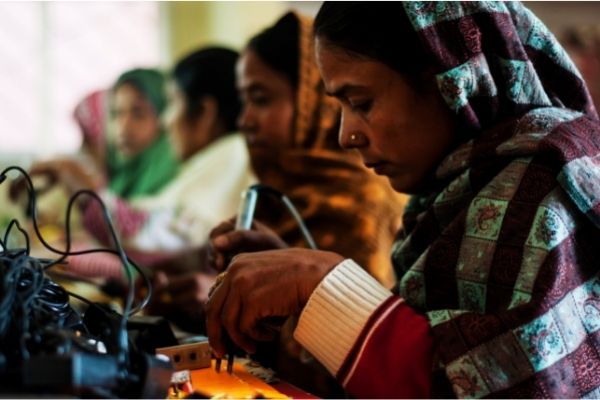
How can communities become more participatory in their own governance and thereby bridge the gap between the State and market on one hand and vulnerable populations on the other? Drawing on the examples set by SEWA’s (Self Employed Women’s Association) cadre of grassroots leaders called aagewans, this paper proposes a Last Mile Model rooted in equitable power-sharing through processes of decentralisation. These grassroots leaders have, over the last 5 decades, built up community leadership models for SEWA that draw on solidarity networks to ensure that the State is able to reach every citizen, thus filling the gaps that have emerged on account of a democratic deficit. In SEWA’s case, it is the aagewans who have stepped forward to carry on the work that their communities need, and become advocates and champions for the women around them, and by extension the entire community; enabling the market and the State to reach those who would be neglected otherwise.
